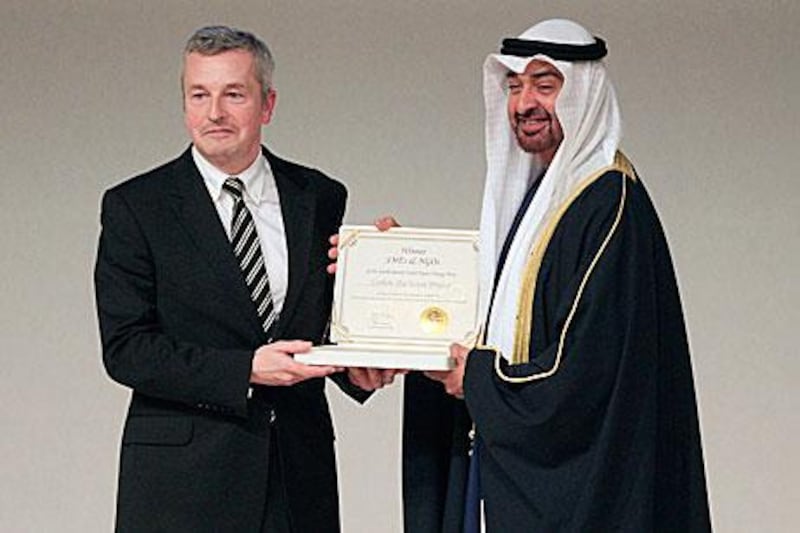ABU DHABI // Severe droughts and heatwaves, melting of the polar ice caps, dramatic sea level rise and the displacement of millions of people living in island states or low-lying coastal areas may be the unavoidable consequences of global warming.
Humanity can escape these disasters but time is quickly running out, experts at the World Future Energy Summit in Abu Dhabi said yesterday. "We have the capacity, we have the opportunity and we have the technologies," said Dr Rajendra Pachauri, chairman of the Intergovernmental Panel on Climate Change, the scientific body that advises governments and the United Nations on climate change.
"Many impacts can be reduced, delayed or avoided through mitigation." Mitigating the effects, however, requires rapidly and fundamentally shifting the way energy is produced away from a dependence on fossil fuels to renewable energy.
"We certainly have no limits to the potential that exists for the use of renewable energy," Dr Pachauri said. "It is also important to know that the costs of most renewable technologies have declined and technological advances will result in further cost reductions."
James Leape of the Worldwide Fund for Nature (WWF) was more sceptical. "Yes, we have a chance but we have really been dragging our feet … we are rapidly running out of time," said Mr Leape, director general of WWF's international secretariat.
"We need to find a way to move very fast and we need to find a way for this shift to become exponential." WWF says the world must be reliant solely on renewable energy by 2050.
Averting the worst effects of climate change requires a legally binding international treaty on reducing greenhouse-gas emissions, which is difficult because of countries' conflicting agendas.
At the latest round of negotiations in Durban, South Africa, last December, governments agreed to start work on a new climate treaty that should be developed by 2015 and come into force in 2020.
"The global community really has to decide where they want to stabilise temperatures," Dr Pachauri said.
Average temperatures this century could rise by between 1.1°C and 6.4°C. Anything above 2°C is likely to have a serious impact on humanity and the environment.
For example, substantial warming might mean frequent heat waves. Days of temperature extremes would occur once every two years by the end of the century, rather than once every 20 years, which was the pattern in the last century.
"This certainly has implications for air-conditioning, for energy demand and for how we adapt to these changes," Dr Pachauri said.
To stabilise temperature rise at no more than 2°C to 2.5°C, emissions must start peaking no later than 2015, Dr Pachauri said.
"Despite the fact we do not have a legally binding agreement, we have some good things happening in the globe," he said. "I have to be an optimist because I would not survive if I was not one."
However, Dr Fatih Birol, chief economist at the International Energy Agency, said a two-degree scenario was "far too optimistic" without a legally binding agreement on cutting emissions.
Such an agreement is also needed to boost investor confidence in renewable energy technologies and projects.
"Unless such an agreement takes place, I do not expect major changes in the current investment trends in energy," Dr Birol said. The share of renewable energy in the global energy mix has been increasing, but not by enough to make a big impact on climate efforts.
"There is growth and there is growth, the growth we would like to see … is far greater than what is going on now," he said.
"What has been agreed in Durban is very good in terms of having all major emitters on board. However, we have very little time to have major changes so that we can come back to a two-degree trajectory."
If climate change is to be reduced, experts agreed, an international, legally binding agreement must be signed that will have effects by 2017.





